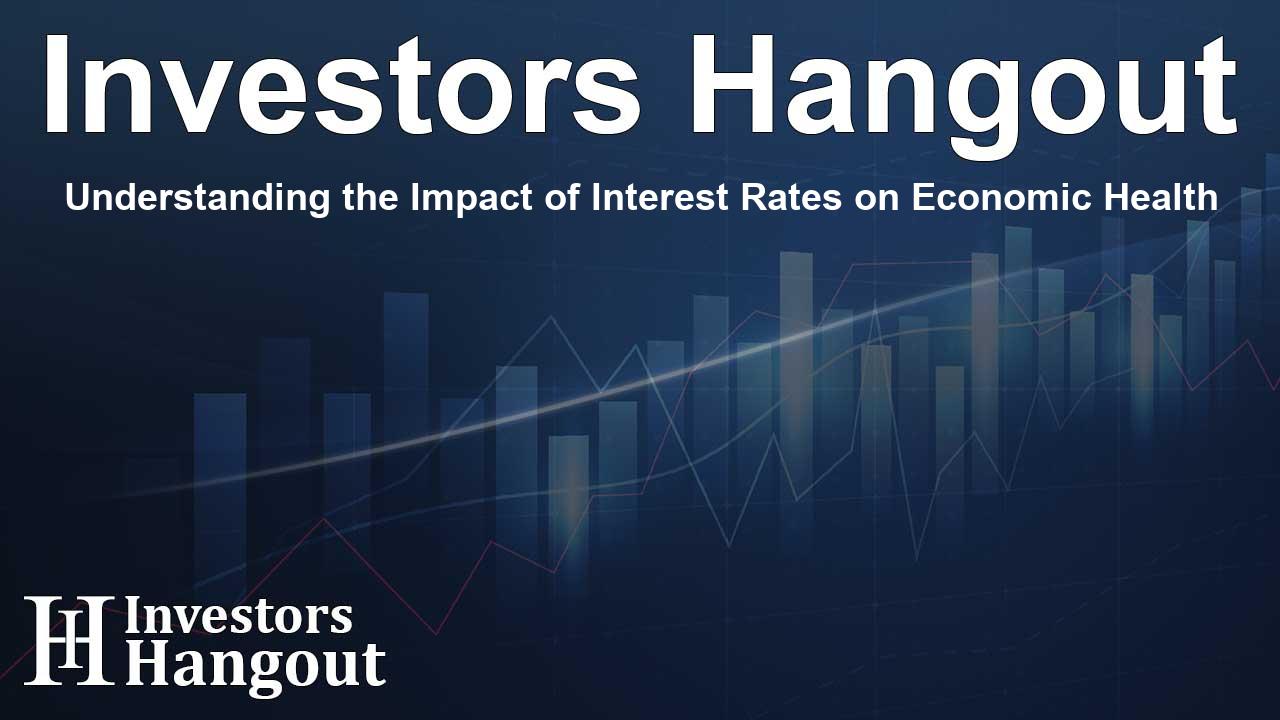Understanding the Impact of Interest Rates on Economic Health

The Importance of Interest Rates in Economic Stability
Interest rates play a pivotal role in shaping the economic landscape. The misconception that low rates are beneficial needs to be reexamined. Instead of fostering growth, these rates often serve to prolong economic malaise by encouraging excessive borrowing and risky investments.
How Low Rates Fuel Economic Challenges
Low interest rates can create a false sense of security in the market, allowing marginal borrowers access to credit. This influx boosts asset valuations temporarily, driving demand but ultimately setting the stage for larger future corrections. Borrowers, including countless new homeowners, are often left vulnerable to significant financial risks when the market turns.
The Housing Bubble Example
The period leading up to the first housing bubble serves as a crucial lesson. During 2003-2007, when mortgage agencies and private lenders relaxed their lending standards, many individuals who would have otherwise been turned away entered the housing market. This surge led to inflated property prices as buyers motivated by the possibility of quick profits pursued investments.
Consequences of Loose Credit
As property values climbed, individuals leveraged their increasing 'wealth' to acquire more properties, often before their initial investments had even appreciated. This strategy created a cycle of speculation, where unbuilt homes became commodities traded between investors, leading to further unsustainable valuations.
The Bursting of the Bubble
Low rates and loose credit eventually proved disastrous. The bubble burst, resulting in widespread defaults and losses, undermining the very foundations of the financial market. The illusion of wealth evaporated almost overnight, leaving individuals and institutions alike staggering from the fallout.
The Role of Financial Authorities
In the aftermath, the role of financial authorities came under scrutiny. Instead of letting the market naturally correct, measures such as bank bailouts were implemented, transferring risk from large institutions to taxpayers. This creates a skewed system where the consequences of risky behavior are externalized to the public.
The Argument for High Interest Rates
High interest rates, in contrast, encourage responsible financial behavior by imposing discipline on both consumers and lenders. They compel individuals to save and focus on maintaining debt levels that align with their income capacities. For developers and investors, the increased cost of borrowing forces a reassessment of project viability, shifting focus away from high-risk propositions.
Long-term Economic Health
When marginal borrowers are minimized and risky ventures are avoided, the economy can flourish. High-interest environments often protect against the systemic risks introduced by easily accessible credit, safeguarding the overall system from future shocks.
A Call for Reassessment
As we navigate these economic challenges, it is vital to reassess the relationship between interest rates and economic health. Relying on low rates as a remedy for prior errors is foolhardy, similar to treating an addiction with more of the same substance. Rather, creating a robust economic environment will require a disciplined approach to credit and borrowing.
Frequently Asked Questions
What are the effects of low interest rates on borrowing?
Low interest rates can encourage borrowing among marginal borrowers, leading to unsustainable debt levels and inflated asset valuations.
How can high interest rates contribute to economic growth?
High interest rates encourage responsible borrowing, ensuring that only sustainable projects are funded, which fosters economic stability.
Why are bailouts controversial?
Bailouts transfer the risk from large financial institutions to taxpayers, creating a moral hazard where risky behavior is incentivized.
What lessons can be learned from the housing bubble?
The housing bubble illustrates the dangers of excessive lending during low-interest rates, emphasizing the need for stricter credit standards.
How can individuals protect themselves financially?
Individuals can protect themselves by adhering to sound financial principles, including saving, budgeting, and borrowing responsibly only when necessary.
About The Author
Contact Hannah Lewis privately here. Or send an email with ATTN: Hannah Lewis as the subject to contact@investorshangout.com.
About Investors Hangout
Investors Hangout is a leading online stock forum for financial discussion and learning, offering a wide range of free tools and resources. It draws in traders of all levels, who exchange market knowledge, investigate trading tactics, and keep an eye on industry developments in real time. Featuring financial articles, stock message boards, quotes, charts, company profiles, and live news updates. Through cooperative learning and a wealth of informational resources, it helps users from novices creating their first portfolios to experts honing their techniques. Join Investors Hangout today: https://investorshangout.com/
The content of this article is based on factual, publicly available information and does not represent legal, financial, or investment advice. Investors Hangout does not offer financial advice, and the author is not a licensed financial advisor. Consult a qualified advisor before making any financial or investment decisions based on this article. This article should not be considered advice to purchase, sell, or hold any securities or other investments. If any of the material provided here is inaccurate, please contact us for corrections.
